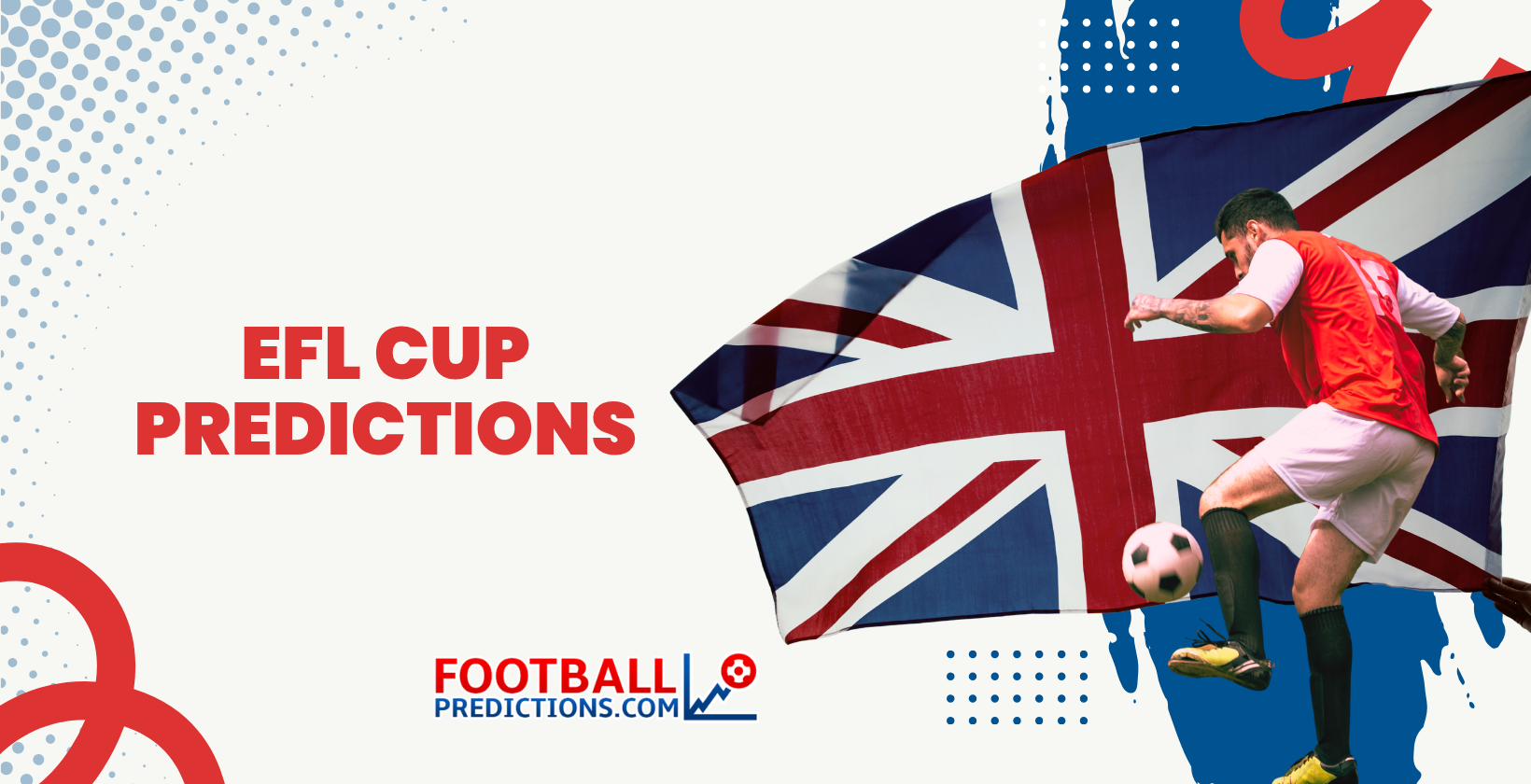All eyes will be on Wembley Stadium when Liverpool and Newcastle United face each other in the EFL Cup final. The Reds are low on confidence following the heart-breaking Champions League loss to PSG, but they are still seen as favourites to lift the silverware. Both Ibrahima Konate and Trent-Alexander Arnold should be fit for the decider despite limping off with injuries in ... Read More...
This match will be played on 16 March 2025 at 16:30
Buoyed by a 2-0 win over Bournemouth, Liverpool will look to give fans yet another reason to celebrate when they take on Tottenham in the EFL Cup semis, return leg. The Reds aim to overcome a one-goal deficit in front of home fans and they are likely to go all guns blazing at Spurs in Thursday’s clash. As always, a man to keep an eye on in the home team will be Mohamed Sal... Read More...
This match will be played on 6 February 2025 at 20:00
All eyes will be on St James Park when Newcastle United and Arsenal face each other in the EFL Cup semis on Wednesday evening. The Magpies aim to recover from a 2-1 loss to Fulham, but they face yet another tough challenge against Mikel Arteta’s troops. All Callum Wilson, Harvey Barnes, and Jamaal Lascelles are out of contention with injuries for the home side, while right... Read More...
This match will be played on 5 February 2025 at 20:00
All eyes will be on Tottenham Hotspur Stadium when Tottenham and Liverpool face each other in the EFL Cup semis, first leg, on Wednesday evening. Spurs aim to put an end to their four-game winless run, but given their shaky defence, home win should not be considered. Manager Ange Postecoglou rested Son Heung-Min and James Maddison at the weekend and the duo is set to return ... Read More...
This match will be played on 8 January 2025 at 20:00
A place in the EFL Cup final will be at stake when Arsenal and Newcastle United lock horns at Emirates Stadium on Tuesday evening. The Gunners dropped two points in a 1-1 draw with Brighton at the weekend and they face yet another difficult task against in-form Eddie Howe’s troops. Both Gabriel Martinelli and Martin Odegaard should be recalled to the starting XI, while Jur... Read More...
This match will be played on 7 January 2025 at 20:00
A spot in the EFL Cup semis will be at stake when Tottenham and Manchester United go head to head at Tottenham Hotspur Stadium on Wednesday evening. Spurs rolled over Southampton 5-0 at the weekend and they are likely to stick to their attacking style of play against Man Utd. Midfielder Yves Bissouma serves a one-game ban, while the likes of Cristian Romero, Ben Davies, Rich... Read More...
This match will be played on 19 December 2024 at 20:00
Southampton will try to recover from a massive 5-0 loss to Tottenham when they take on Liverpool in the EFL Cup quarter-finals on Wednesday evening. The Saints do not seem to be competitive in the new Premier League season and they face yet another uphill task in the EFL Cup clash with Arne Slot’s troops. Kamaldeen Sulemana should drop to the bench following his under-par ... Read More...
This match will be played on 18 December 2024 at 20:00
Buoyed by a thrilling 4-0 win over Leicester City, Newcastle United will look to give fans yet another reason to celebrate when they take on Brentford in the EFL Cup quarter-finals. The Magpies have regained a much-needed confidence, especially Jacob Murphy, who scored a brace at the weekend, while all Sven Botman, Emil Krafth, Jamaal Lascelles, Nice Pope, and Calum Wilson r... Read More...
This match will be played on 18 December 2024 at 19:45
A spot in the EFL Cup semis will be at stake when Arsenal and Crystal Palace square off against each other at Emirates Stadium on Wednesday evening. The Gunners failed to impress in a goalless draw with Everton and, no doubt, they are eager to get back on course as soon as possible. All Leandro Trossard, Gabriel Jesus, and Thomas Partey are in line for a recall to the starti... Read More...
This match will be played on 18 December 2024 at 19:30
All eyes will be on Tottenham Hotspur Stadium when Tottenham and Manchester City lock horns in the EFL Cup last 16. Spurs failed to impress in a 1-0 loss to Crystal Palace, but they are on a four-game winning run at home in all competitions. Both Richarlison and Timo Werner are pushing for a start, while Heung-min Son remains in the recovery room. Summer signing Dominic Sola... Read More...
This match will be played on 30 October 2024 at 20:15
Following a thrilling 3-3 draw with Plymouth, Preston will look to claim a major scalp in the EFL Cup last 16 when they face Arsenal on Thursday evening. The Lilywhites have been scoring goals for fun of late and they are likely to adopt yet another attack-minded approach against Arsenal. Experienced Ireland midfielder Robbie Brady limped off with injury in the last Champion... Read More...
This match will be played on 30 October 2024 at 19:45
Newcastle United will look to get their revenge on Chelsea for Sunday’s Premier League loss when the two sides face each other in the EFL Cup last 16. The Magpies are not enjoying a season to remember, but they are surely capable of matching the Blues at their St. James’ Park. All Murphy, Longstaff, and Willock are pushing for recalls to the starting XI, while both Kiera... Read More...
This match will be played on 30 October 2024 at 19:45
Manchester United will look to recover from a 2-1 loss to West Ham United when they face Leicester City at Old Trafford in the EFL Cup last 16. The Red Devils have slim chances of winning Premier League trophy and, no doubt, they want to go all the way in the EFL Cup. Noussair Mazraoui is unlikely to be risked after limping off with injury against the Hammers, with Victor Li... Read More...
This match will be played on 30 October 2024 at 19:45
A place in the EFL Cup quarter-finals will be at stake when Aston Villa and Crystal Palace face each other at Villa Park on Wednesday evening. The Villans were on the verge of beating Bournemouth in their last Premier League game, but Evanilson’s late goal eventually helped the Cherries grab one point from the match. Unai Emery’s men aim to return to winning ways as soon... Read More...
This match will be played on 30 October 2024 at 19:45
All eyes will be on Amex Stadium when Brighton and Liverpool lock horns in a highly-anticipated EFL Cup game. The Seagulls dropped two points in a 2-2 draw with Wolverhampton, conceding two late goals, meaning that they could be low on confidence in Wednesday’s clash. Both Brajan Gruda and Ethan Ferguson are in line to return to the starting XI, while all Joao Pedro, James... Read More...
This match will be played on 30 October 2024 at 19:30
Brentford will look to build on a thrilling 4-3 win over Ipswich Town when they take on Sheffield Wednesday in the EFL Cup last 16. The Bees have been scoring goals for fun at home of late and, no doubt, the return of Yoane Wissa from injury has helped them improve offensively. Kristoffer Ajer is unlikely to be risked, while all Igor Thiago, Aaron Hickey, Gustavo Nunes, Josh... Read More...
This match will be played on 29 October 2024 at 20:00


























